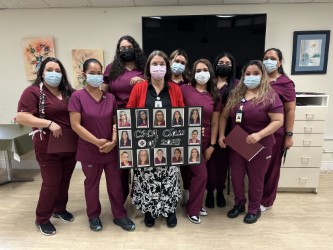Public Health Department Urges Caution With Wild Mushrooms
- Category: Advisories
- Posted On:
- Written By: Santa Barbara County Public Health Dept

The Santa Barbara County Public Health Department is urging local residents to be aware of the dangers of ingesting wild mushrooms.
With the recent seasonal rains, wild mushrooms have begun appearing in parks and residential neighborhoods throughout Santa Barbara County. But eating them can cause serious illness and even death for humans and animals, health officials warn.
While some wild mushrooms are edible, a number of the varieties appearing locally range in danger from mildly or moderately toxic to very poisonous.
According to the California Poison Control System, or CPCS, eating poisonous mushrooms may cause abdominal pain, cramping, vomiting, diarrhea, liver damage, and death.
Dog owners should also be on the lookout for suspicious wild fungus. If a dog ingests a dangerous mushroom, owners should look for instances of vomiting, diarrhea, abdominal pain, weakness, lethargy, excessive drooling and seizures in the canine.
Public health officials urge anyone with these symptoms, or having an animal exhibiting those symptoms, to seek immediate medical attention. Additionally, healthcare providers and those who eat the fungus should contact the California Poison Control System at 800-222-1222, which collects statistics on poisonings.
The most serious illnesses and deaths have been linked primarily to wild mushrooms known to cause liver damage, including Amanita phalloides, also known as the “death cap” and Amanita ocreata, or “destroying angel.”
According to the county Public Health Department, CPCS is reporting that there have been 695 cases of human ingestion of poisonous mushrooms from November 2017 through the end of October 2018 in California.
Among those, 4 cases experienced a major health effect in which the symptoms were life-threatening or had a residual effect and 44 cases had a moderate effect in which the patient required some form of treatment. Of the almost 700 cases, 366 cases involved children 5 and younger.
In June 2017, a large group of people foraging wild mushrooms in Northern California. Fourteen people became severely ill. Three of them needed liver transplants, including an 18-month-old girl who also suffered permanent brain damage.
Wild mushroom poisoning is said to be excruciatingly painful. The hazard warning about wild mushrooms is particularly critical because those types of mushrooms can easily be mistaken for a nonpoisonous fungus. The mushrooms do not have a distinct taste or smell and grow from coast live oaks and other trees prevalent in this region.





